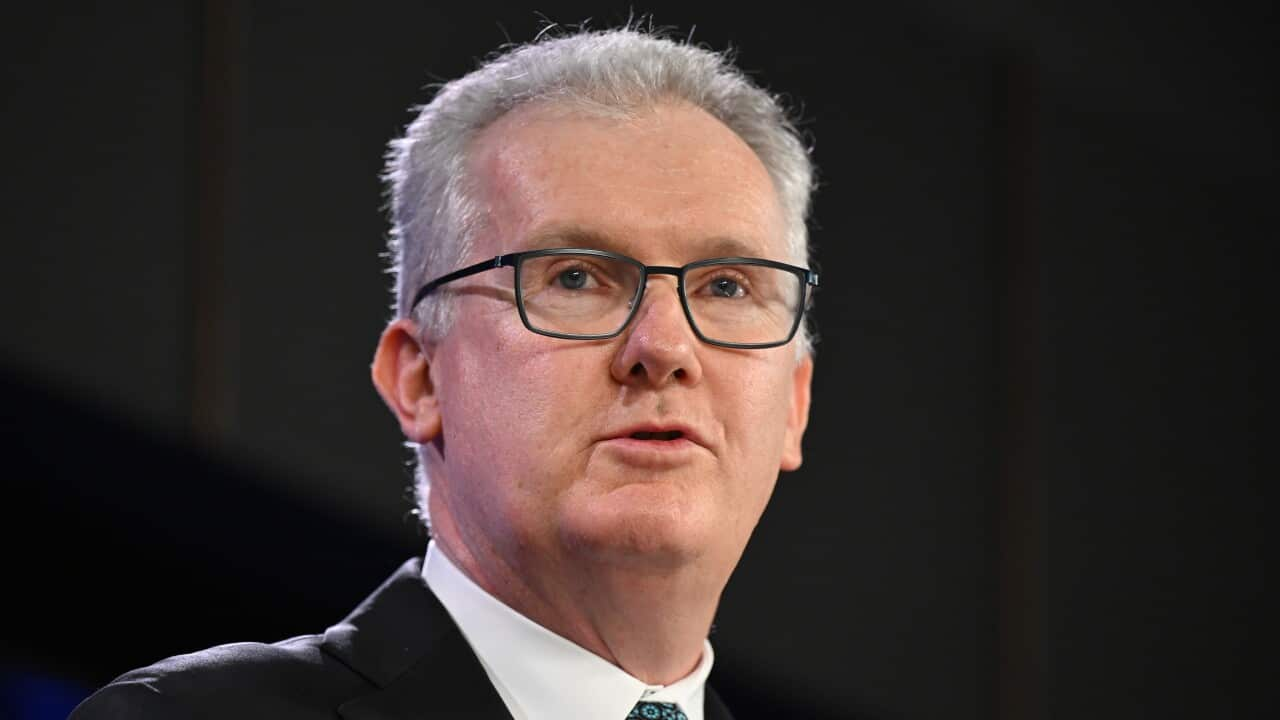Nauru has accepted the first cohort of deportees from Australia, including members of the NZYQ group, which had visas cancelled on character grounds.
In August, Australia committed to an upfront payment of $408 million to resettle the non-citizens in Nauru, and is expected to spend $2.5 billion over the 30-year lifetime of the deal.
On Friday, Nauru President David Adeang told his parliament the first person had arrived under the deal struck with the Albanese government eight months ago.
Home Affairs Minister Tony Burke confirmed the arrival but did not specify how many people were on the first transfer.
"Nauru confirmed last Friday that the first transfer has occurred," Burke said in a statement on Tuesday.
"When someone's visa is cancelled, they should leave."
It is understood Nauru initially suggested the deal to the Albanese government as a solution to the NZYQ cohort saga.
It refers to a group of detainees who were released into the Australian community after the High Court in 2023 found indefinite immigration detention was unlawful.
As of 12 May 2025, at least 303 former NZYQ detainees have been released into the Australian community since the ruling, according to the Department of Home Affairs.
Many members have been convicted of serious crimes and were subject to curfews and monitoring upon release, leading to the cancellation of their visas on character grounds.
A government source has told SBS News that around 280 members of the NZYQ cohort are to be granted visas in Nauru and will live among the local population of around 12,000 people and would not be going into detention.
Last year, the government bolstered its powers to deport members of the group to third countries under new migration laws.
Burke said in February three people from the NYZQ cohort would be resettled in Nauru on 30-year visas as part of a financial deal with the country, after having their Australian visas cancelled.
Greens, refugee advocates criticise 'secrecy'
The Greens and refugee advocates have criticised the secrecy of the deportation plan, arguing it goes against Australia's human rights obligations.
Greens immigration spokesperson David Shoebridge expressed concern that once they arrived in Nauru, members of the group could be deported to their home countries against their will, potentially facing persecution or harm.
"No matter who you are or where you were born, governments should not be able to disappear you, send you off against your will to a country that you have zero connection to," Shoebridge said.

"Labor has been behind the most extreme policies in our immigration system in recent history — mandatory detention, offshore detention, a Trump-style travel ban and now this."
He said, "people are secretly being sent to Nauru, with key aspects of the deal still kept from the Australian public", condemning the lack of transparency and "contemptuous silence" from Minister Burke.
The criticisms over secrecy have been echoed by Laura John, associate legal director at the Human Rights Law Centre.
"The Albanese Government’s mass deportation plans have been shrouded in secrecy from the outset," she told SBS News.
"We do not know if the person who has been exiled has left family behind in Australia, whether they need medical care that is unavailable in Nauru, or even if they still had visa appeal options in Australia.
"This secrecy is not an accident. It is a deliberate tool wielded by the Albanese government to ensure that it does not have to grapple with the real, human consequences of its actions."
She said this was a "new low" in the treatment of refugees and would ultimately leave a legacy "sowing fear and division against migrant and refugee communities".
For the latest from SBS News, download our app and subscribe to our newsletter.

